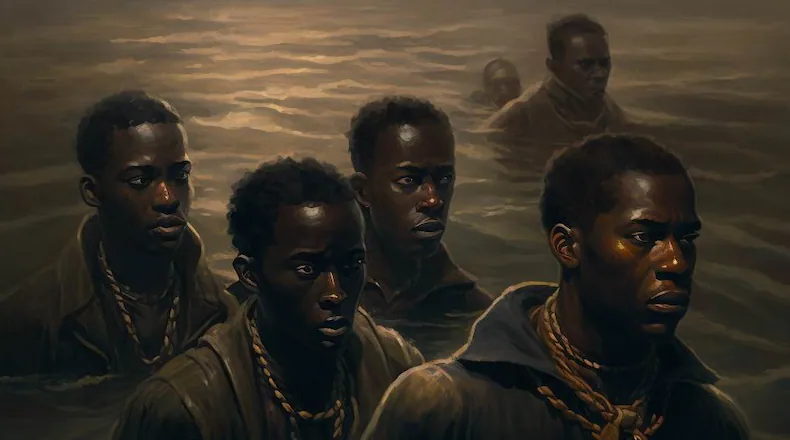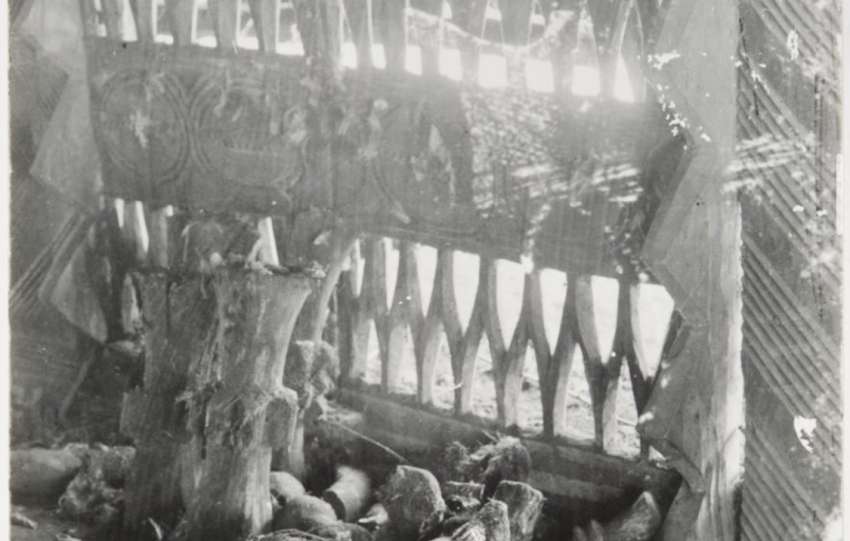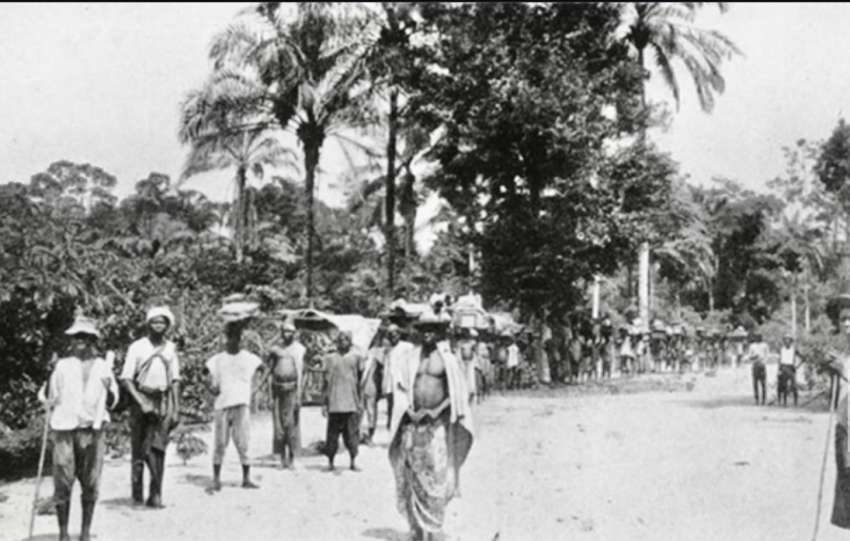“Ọnwụ anaghị ama nna, ọ bụghị nke nna ya ka ọ na-akpọ” (Death does not know who the father is; it calls whom it will). In the heart of Western Igboland, the echoes of drums once signaled both life and danger. The drums of captivity beat during festivals, masquerades, and shrines, but they also rolled through the forests as war parties returned with captives. For centuries, the Igbo world was shaped not only by trade and kinship but also by slavery, exile, and survival. From cult slavery, to the raids of the Aro and Abam warriors, to the stories of fugitives who founded entire communities, slavery left behind a legacy that is still remembered in Igbo names, folklore, and proverbs today.
Cult Slavery in Igboland
In many Igbo communities, individuals could become slaves to deities, shrines, or secret cults. Some were dedicated by families in times of crisis; others were captured or forced into servitude. These cult slaves were known as ndị arụ or ndị arụchọ, bound to shrines for life. Unlike domestic servants, they lived in religious compounds and were often feared by ordinary people. In some cases, cult slavery provided protection from being sold into the trans-Atlantic slave trade, but it also meant a life of confinement.

A popular Igbo proverb captures this paradox: “Agwọ na-eri anụ, ma na-echekwa ụkwụ ya” (The snake eats animals, but still protects its tail). For some families, giving a child to a shrine meant losing one life to save the rest.
Fugitive Slaves and the Founding of Communities
Slavery also created pathways to freedom. Many fugitive slaves escaped from cults or war captors and established new villages. Oral traditions in Enugu-Ukwu, Umuchu, and parts of Nsukka tell of groups who fled bondage and built settlements far from their oppressors. These communities often carried names that reflected their history of struggle, like Umu-Agbaja (children of fugitives) or Umu-Nna-ama (children whose kin were abandoned).
This resilience is summed up in the saying: “A sị na e ji mmadụ akwụ ụgwọ, mmadụ anaghị akwụ ụgwọ mmadụ” (If a person is pledged as payment, another person cannot redeem him). In other words, those who escaped had to create a new destiny by themselves.
Olaudah Equiano: The Child Slave of Isseke
One of the most famous stories of slavery in Western Igboland comes from Olaudah Equiano (1745–1797), known in his village of Isseke as Ọdụdị Anwụ (child of destiny). At the age of eleven, Equiano was kidnapped with his sister and sold into slavery, beginning a journey that took him from Igboland to the Caribbean and later to London. His autobiography, The Interesting Narrative of the Life of Olaudah Equiano (1789), remains one of the earliest firsthand accounts of Igbo life before and during the slave trade.
Equiano’s capture reflects a wider truth: that even children were not safe. His story lives as both a tragedy and a triumph. Tragedy because of the violence of capture, triumph because his voice carried Igbo memory across the seas.
Social Impact of Slavery
The presence of slaves shaped Igbo society in profound ways.
- Family Structures: Some lineages carried the stigma of slave descent for generations.
- Marriage: Families avoided marrying those suspected of slave ancestry.
- Titles and Politics: Only freeborn (ndị dí ala) could take prestigious titles such as Ọzọ or become chiefs.
- Oral Memory: Many folktales warn against betrayal, kidnapping, and greed, reflecting the dangers of slavery.
One chilling proverb was often quoted in such tales: “Egbe bere, ugo bere; nke si ibe ya ebena, nku kwaa ya” (Let the kite perch and let the eagle perch too; if one denies the other, may its wings break). This proverb, often told to children, was a reminder of equality and the dangers of oppression.
Resistance and Survival
Not all accepted slavery passively. Families devised creative ways to resist:
- Poisoning food meant for captors.
- Using the Ikoro drum to alert villages of raiders.
- Forming secret vigilante groups to ambush warriors.
This spirit of resistance planted seeds of heroism that echoed through later wars, especially during the slave raids of the Aro confederacy. Survival became an act of heroism in itself.
Slavery in Western Igboland was more than a system of bondage; it was a test of human endurance, memory, and reinvention. The echoes of those centuries remain in Igbo proverbs, in the founding of villages, in the names given to children, and in the resilience of a people who turned pain into survival stories.
As the Igbo say: “Uwa bụ ahịá; onye zere ahịá, zere ụwa” (The world is a market; whoever avoids the market avoids the world). Slavery was the hardest market of all, yet out of it came stories of survival, dignity, and unbroken identity.
References
- Equiano, O. (1789). The interesting narrative of the life of Olaudah Equiano, or Gustavus Vassa, the African.London: Author.
- Nwaocha, O. D. (2021). Abolition of Osu, Ume, Ohu and Diala castes system in Igbo community: Approach through Fundamental Cultural Liberalism. Ikenga: International Journal of Institute of African Studies, 22(1), 1–20.
- Oriji, J. N. (2007). Igboland slavery and the drums of war and heroism. Journal of African History, 48(1), 23–44.
- Talbot, P. A. (1921). The peoples of Southern Nigeria. Oxford University Press.
- Basden, G. T. (1966). Among the Ibos of Nigeria. Frank Cass & Co. Ltd.



